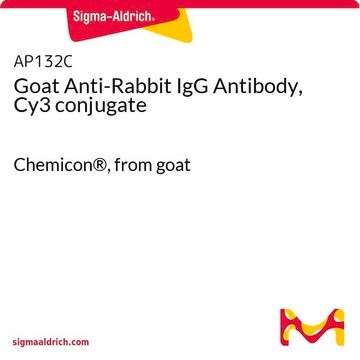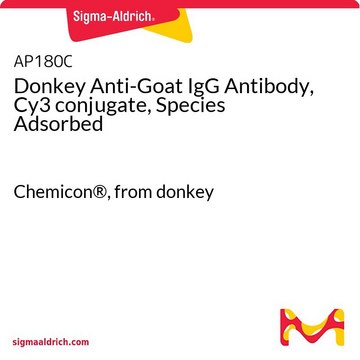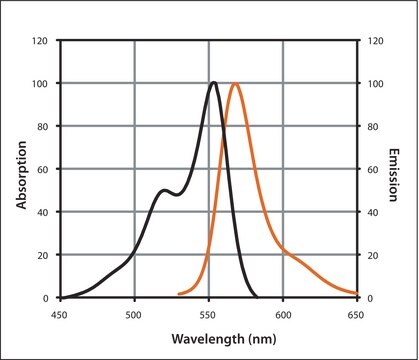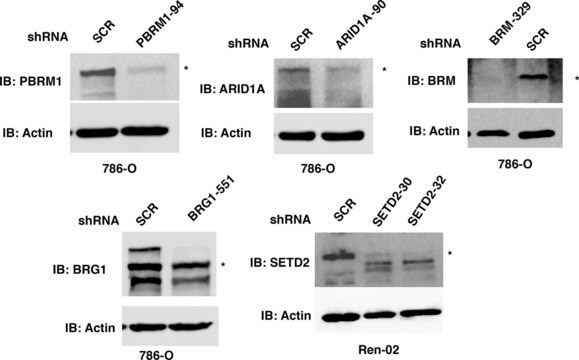AP106C
Rabbit Anti-Goat IgG Antibody, Cy3 conjugate
Chemicon®, from rabbit
About This Item
Produits recommandés
Source biologique
rabbit
Niveau de qualité
Conjugué
CY3 conjugate
Forme d'anticorps
F(ab′)2 fragment of affinity isolated antibody
Type de produit anticorps
secondary antibodies
Clone
polyclonal
Espèces réactives
goat
Fabricant/nom de marque
Chemicon®
Technique(s)
immunofluorescence: suitable
Conditions d'expédition
wet ice
Modification post-traductionnelle de la cible
unmodified
Application
Secondary & Control Antibodies
Whole Immunoglobulin Secondary Antibodies
Informations légales
Clause de non-responsabilité
Vous ne trouvez pas le bon produit ?
Essayez notre Outil de sélection de produits.
Mention d'avertissement
Warning
Mentions de danger
Conseils de prudence
Classification des risques
Aquatic Chronic 3 - Eye Irrit. 2 - Skin Irrit. 2
Code de la classe de stockage
11 - Combustible Solids
Classe de danger pour l'eau (WGK)
WGK 3
Certificats d'analyse (COA)
Recherchez un Certificats d'analyse (COA) en saisissant le numéro de lot du produit. Les numéros de lot figurent sur l'étiquette du produit après les mots "Lot" ou "Batch".
Déjà en possession de ce produit ?
Retrouvez la documentation relative aux produits que vous avez récemment achetés dans la Bibliothèque de documents.
Notre équipe de scientifiques dispose d'une expérience dans tous les secteurs de la recherche, notamment en sciences de la vie, science des matériaux, synthèse chimique, chromatographie, analyse et dans de nombreux autres domaines..
Contacter notre Service technique









